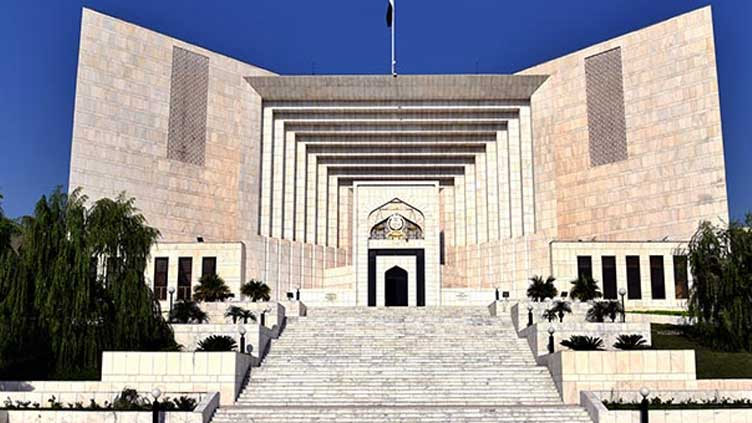SC questions need for constitutional amendment for military court trials of terrorists

Pakistan
Justice Mandokhail remarked that intention behind the crime was a crucial factor
ISLAMABAD (Dunya News) - The Supreme Court's seven-member constitutional bench, headed by Justice Aminuddin Khan, resumed hearing on Wednesday on an intra-court appeal challenging military court trials of civilians.
The bench included Justices Jamal Mandokhail, Muhammad Ali Mazhar, Naeem Akhtar Afghan, Musarrat Hilali, Hassan Azhar Rizvi, and Shahid Bilal.
During the proceedings, Justice Jamal Khan Mandokhail questioned why a constitutional amendment was necessary for trying terrorists in military courts.
Defense Ministry counsel Khawaja Haris began his arguments by stating that the nature of a crime determined the trial forum. If a civilian’s crime was linked to the armed forces, the trial would fall under military courts, he argued.
Justice Mandokhail remarked that intention behind the crime was a crucial factor and whether the crime was aimed against national interests. Khawaja Haris responded that evidence determined intent, which is evaluated during the trial.
Addressing historical cases, Justice Mandokhail queried why incidents like the GHQ and Karachi Air Base attacks were not tried in military courts. Haris referenced the 21st constitutional amendment, which had expanded the scope of military courts to include various crimes beyond traditional military discipline.
Haris maintained that the Army Act and the Official Secrets Act were already in place during the Army Public School (APS) attack and other incidents, arguing that amendments were aimed at addressing broader crimes.
The court adjourned the hearing until Thursday, with Khawaja Haris expected to continue his arguments.


